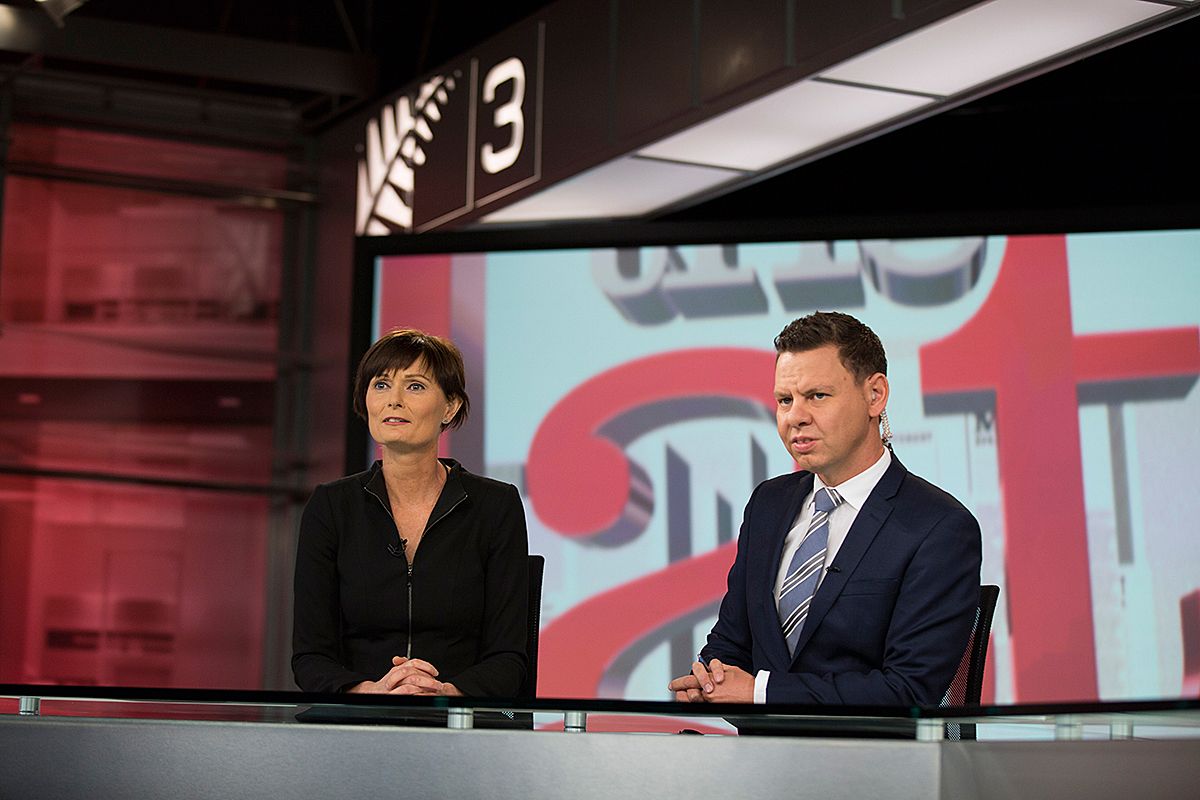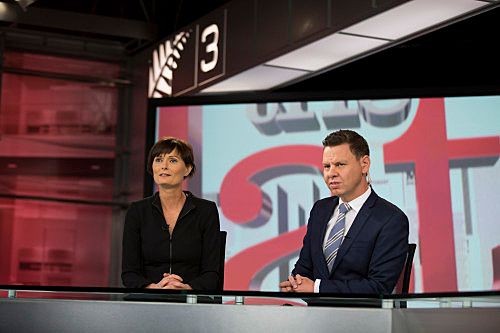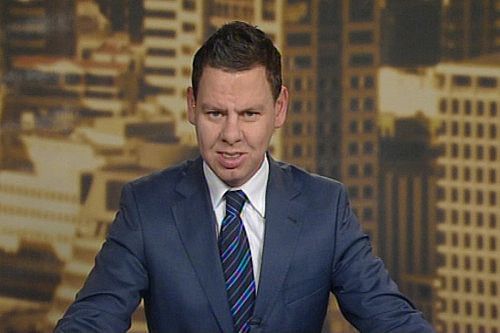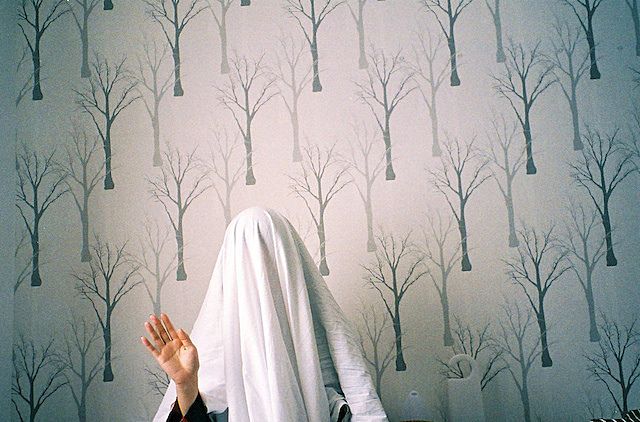Asking the Right Questions: Patrick Gower
As we head towards New Zealand's 51st general election, we talk to four political editors who are tasked with setting the agenda. First up: TV3's Patrick Gower.
In 1886, W.T. Stead proclaimed, “I am but a comparatively young journalist, but I have seen Cabinets upset, Ministers driven into retirement, laws repealed, great social reforms initiated, Bills transformed, estimates remodelled, programmes modified, Acts passed, generals nominated, governors appointed, armies sent hither and thither, war proclaimed and war averted, by the agency of newspapers.”
The editor of the Northern Echo, and later the Pall Mall Gazette, had an early understanding of the power that the media wields. More recently the British Home Secretary during the Blair era, Charles Clarke, stated that “the fact is that personality and the theatre of politics mean much more in terms of selling the paper than substance.”
As witnessed in New Zealand recently, the media is a huge force in the corridors of power, and is bent to ends both good and evil.
Political journalism, especially in the mainstream media, certainly informs and perhaps shapes public opinion. As we head towards New Zealand's 51st general election, we talk to four political editors who are tasked with setting the agenda.
Patrick Gower began as a journalist at the NZ Herald before heading overseas. On his return he began reporting on politics during the 2008 election, eventually making the transition to television. He replaced Duncan Garner as TV3's political editor in late 2012.
What’s your life like right now?
Crazy. I’m completely over-tired, haven’t had a break for quite a few days in a row now, working pretty much every day, lots happening, the phone’s ringing off the hook, texts off the hook, emails up the wazoo, and that’s about it. I’m enjoying it though.
Was politics always the aim when you became a journalist?
It was and it wasn’t. I had studied politics at Victoria University and I was always interested. I ended up doing an honours degree in politics and my research paper was on politics and the media. But then when I became a journalist in 1999 and went to the New Zealand Herald I ended up doing other things. I was a Hamilton reporter, a crime reporter, and then I was an investigative reporter. I really drifted away from politics and I didn’t have a grand plan of coming back to do it or anything. I really enjoyed the other stuff I was doing and stopped thinking about becoming a political reporter. When I ended up coming back, I wasn’t really pushing to get to the gallery or anything like that, but an opportunity came up to come down for three months for the 2008 election. That kicked things off again. I’m here and I’m glad to be here.
What were your early experiences in the press gallery like?
It just blows your mind coming to work at Parliament. I remember coming in for my first day in July 2008, with shiny shoes, coming down from Auckland. I couldn’t believe all the politicians were just walking around. I saw John Key at the airport, who was leader of the opposition at that point. I couldn’t believe that you had so much access to them, after grappling with spin doctors for the first 10 years of my journalism career. I couldn’t believe that you could just ask questions. You could ask Winston Peters whatever you wanted. That was kind of mind-blowing in some senses and it still is sometimes. We just had a journalist out here from Myanmar who couldn’t believe the access that we have to politicians, right up to the prime minister. Journalists from other countries are always really amazed at the access that New Zealand media has to our politicians.
Do your earlier experiences in journalism set you up at all, or is it all a completely new thing?
One of the benefits that I’ve had is that I did have a great portion of my career outside of the press gallery. I haven’t been here super long, it’s only six years, and I think in some ways that’s good because I spent the first 10 years learning a whole lot of different things, different journalism skills that aren’t about politics at all which in a funny way kind of sets you up nicely for being here. I’m basically not institutionalised in some senses. Some of the political reporters are really experienced and really wise, and at the other end of the spectrum there are plenty of people coming in from outside who are really keen, and I guess I sit somewhere in the middle of that now, which is not a bad place to be. I’m still keen and I’ve got a bit of experience, but I’m not institutionalised.
Is there a tension between the new ones and those who have been there for decades?
I often say that the press gallery is more political than Parliament itself. It’s got a hierarchy; it’s got a lot of competitive tension. You’re friends with them, you’re colleagues, and you’re also trying to outwit them every day. There’s always a tension between different styles and different choices of story, and different choices of analysis, and different treatments. It’s an interesting old beast inside here
What in your eyes is the role of political journalism?
It’s to hold those in power to account, to be the eyes and ears of the punters. We’ve got a privileged position in that we’re in Parliament, we’ve got access to the people, and we’re given that privilege to be here for those that can’t, the taxpayers and voters who want to ask the questions that we do. Our job is to be here for them. It’s not about our agendas or anyone else’s agendas; it’s really just to be here for the voters. That’s a huge responsibility and what makes the job so important.
Was it difficult to transition between print and television?
Everyone asks me this and I give the same answer. It was bloody difficult. You don’t have to wear make-up in print for starters. The two styles are really different. In print, the power is in the writing, and you have the ability to get into some quite sophisticated and complicated issues, which a lot of things around Parliament are. In television, you don’t have that ability to get into the more complicated things because you’re working with a much tighter form of writing. But at the same time you’ve got the power of the pictures which add another dimension. I’ve always said, and it’s becoming a bit of a cliché, in print you have a scalpel, and in television you have an axe. But both can do the same job in really different ways. Sadly there’s no kind of instrument that sits in between the scalpel and the axe. But at the same time in television you still get to write your scripts, but it’s a lot like writing headlines. That’s the kind of writing style that you use. While you still have the creative outlet of writing, it’s very different to writing a newspaper print story where you have all the benefits of structure and length. A newspaper story is something like 450-600 words, whereas a television script is something like 150 to 200 max. So it’s really quite different to adjust to. But at the same time I’ve really enjoyed working with changing mediums. It’s a good thing for a journalist to do and I’d recommend it to anyone. You can always go back and it’s good to see how another one works. I’ve enjoyed that. At the same time I’m still blogging which is a way to use your writing skills and analysis in print as well.
In print you have a scalpel, and in television you have an axe.
Can you explain the scope of your role as political editor for TV3?
I’ve got to decide what’s covered basically, that’s the first thing. Then I’ve got to do my own coverage and analysis within that. From the mass of everything that is going on here every day I’ve got to decide what the most important things are and give those to either myself or my political reporters Brook Sabin and Tova O’Brien.
From there it’s not just a management role because I actually do all my own stories, I go around and do the interviews for them, I write the scripts, I come up with my own analysis, and put the stories together myself with an editor, and I shoot them with the camera operators. Invariably I prepare for a live cross as well, and prepare my own analysis as well as the performance element of being on live TV. And I help manage the stories that Tova and Brook are doing as well, in terms of how they are structured and put together. And if I get time, subbing them and making some constructive changes or just brainstorming with them about where the stories will go. And that’s just a normal day, and then there’s dealing with politicians and all the problems they’ve got with our coverage and stuff like that which is always added into the mix. So it’s pretty full-on, and sometimes you might chop and change stories during the day because everything is so changeable. You may come in with one plan at the start of the day for three stories and you may get out of it at the other end and have three totally different stories. Parliament is just an ever-changing kind of thing.
There are accusations of bias towards almost every media outlet. How do you respond to those accusations?
I don’t respond to them on Twitter or whatever. Most of the time I’m being accused of being too far to the left or too far to the right, and quite often on some nights I’m criticised for being both by different people. What I say is that people are entitled to their views of the media, and I understand that when people are voting or are passionate about one political side or the other then they have the right to express that and be interested and to criticise if they want.
But the reality is that I’m not biased. I’m just not, I know I’m not. I don’t report in a biased way, and often it’s just people with a bias airing their own frustrations or their own views. I don’t spend ages getting wrapped up in it all. It doesn’t worry me or anything because each night I go home and I sleep straight in my bed because I just know I’m not. If you ran around trying to disprove everyone you wouldn’t have time to do your job. The thing for me is that I pride myself on chasing the story and following the best story and trying to break the best story, working with the facts. While you’re doing that you tend to forget all the other stuff that’s around. I never think am I being biased to one side or the other. I just do the story and it all works out even in the end. I take a pretty old-school approach of being as hard as possible on both sides and leave it at that.
People ask all the time do I vote, and I just don’t, because I like to be independent as possible. I understand a lot of other journalist here can vote and personally I think that’s fine. And being fair to both sides is important, and always giving a fair go to everyone and letting them have their say is absolutely crucial. Ultimately the best guard against bias is just by doing the best stories in the best way that you can. If you’re following the news then you never have to worry about being biased.
Is there a scalp-claiming culture, or is that just a by-product of political journalism?
I never think about scalps or anything like that, or even the terminology. I don’t wake up in the morning and think ‘I’m going to get a scalp today’, or think at the start of the year ‘I hope I get a scalp this year’. I don’t think there is a culture or anything like that, but maybe it is a by-product. In the search for accountability sometimes, people are looking for something to happen. In politics that’s often someone losing their job or someone losing a role. We see at the moment with Judith Collins and stuff like that there are a lot of people out there saying ‘where’s the accountability?’ in terms of the Dirty Politics book. Perhaps in the search for accountability, the need for someone to lose their job or whatever, there is as a way for people to see that. Part of that, and the wider question, is if someone loses their job as a sort of political expediency, does that actually change anything, does it change any systems or bring about any systemic change, or is it just something to hand to the media and the public that doesn’t get us any further? That’s for others to decide. Is there a scalp culture? Not really, not for me anyway.
If someone loses their job as a sort of political expediency, does that actually change anything, does it change any systems or bring about any systemic change, or is it just something to hand to the media and the public that doesn’t get us any further?
How do your stories generally come about? Is most of it legwork?
There’s no one formula. I’ve got lots of sources built up over 15 years, and stories do come from those sources. I’m also really capable of digging out my own stories as well, which is another thing I pride myself on. They come from sources, from digging them out. Lateral thinking is another big way I get my stories, watching and getting a feel for what’s going on and looking to see ways into stories. Most stories that come to you from political sources are really interesting, because you’re actually bombarded with stories from political sources, like, bombarded. It’s a real wheat from the chaff kind of thing; politicians are all too ready to try and get you to do a story and most of the time, 9 out of 10 or 19 out of 20 or even higher, stories that political sources come to me with do not air, they do not stand up to the scrutiny of what I need. So in terms of being handed stuff – hardly ever. Mostly it’s a digging/feel/sources kind of mix. There’s no real one formula.
Often when you look back at them, someone’s told you something, you’ve heard something, you’ve seen something, you’ve thought of something, and I usually use all of those. You might have an OIA on something from a long time ago. Usually when I look back on my good stories, there’s always a jigsaw puzzle of different things that have come together, and there might be a piece of luck in there too. For some bloody reason stories are never simple. For whatever reason they’re never easy. There’s always these added degrees of difficulty to them. I guess that’s part of the craft as well, and the more you do stories the more you learn things along the way that you deploy the next time around to get a story up. And that’s when you’re satisfied with your journalistic craft I guess, because you’ve used all your skills to get a story out.
It seems a strange era in New Zealand politics. Is it a good time to be doing what you do?
It’s a different era, and it is strange. It’s been a really strange year; there’s been a lot of political-type distractions. If you look back at this year, right the way through, there’s been a lot of what people would probably think are side issues, one after the other right through the year. It’s actually been crazy, it’s like there’s something in the water in New Zealand politics.
I was watching the television program Borgen, a Danish drama which is based on a Proportional Representation System, and they’ve managed to make a pretty good drama out of it. The characters in that, which are made up, are nowhere near as good as the characters in New Zealand’s political scene right now. If you take everyone from Kim Dotcom through to Winston Peters through to John Key, and everyone in-between, you’ve got a pretty good cast of characters for a drama. And it actually plays out in reality. We’ve just seen this year for one reason or another, it’s just been a really crazy year. And with the election campaign, which is really in its infancy, that’s gone up a notch. So yes, it is a good time to be a political reporter because it has been a unique year. Whether it stays like this next year or it changes I don’t know. But in terms of sheer pace and intensity it’s been a good year. Whether next year is more about policy or whatnot, we’ll have to wait and see. The best way to describe it is that it’s been a very political year, and yep, that’s good to report on. But it’s also quite tiring with the intensity and feeling and ill-feeling between the different sides. It’s made it a tiring and intense year. It’s not all that much fun to be right in the middle of this sort of thing all the time. It is intense and it does get you down from time to time.
Asking The Right Questions continues throughout the week.
You can follow Paddy at @patrickgowernz and via TV3



